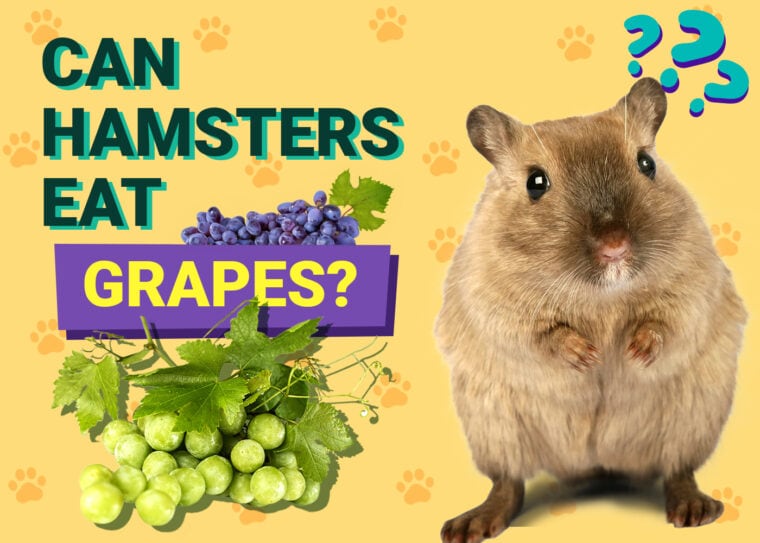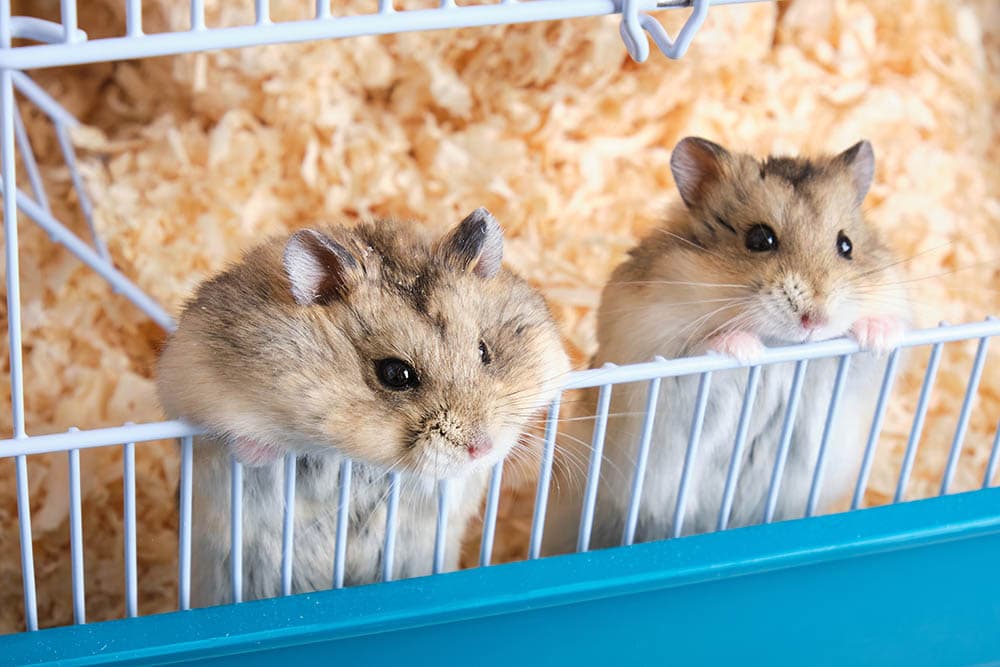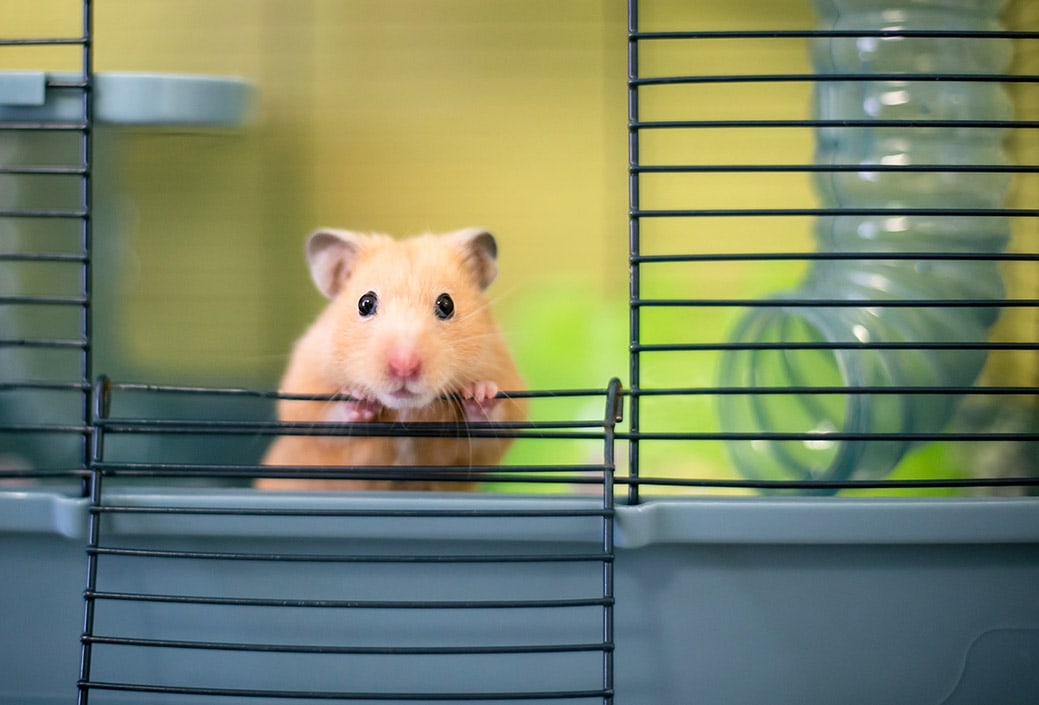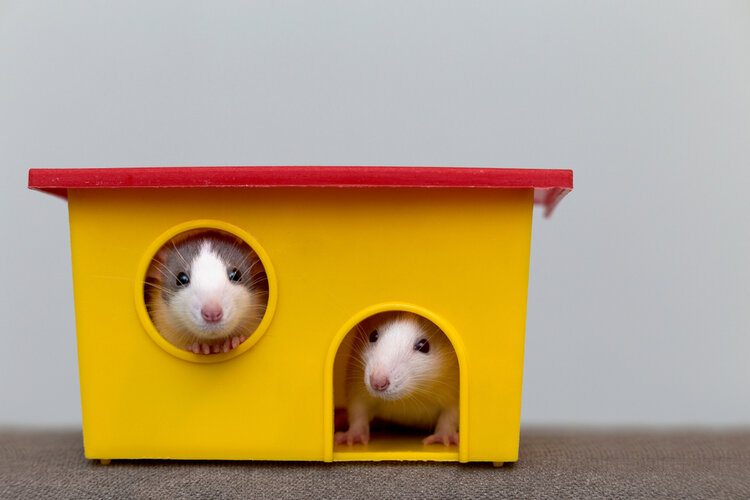
You might be preparing tasty fruits for your hamster and wonder whether it’s okay to add grapes to the mix. If you have other pets like dogs, you may know that grapes are toxic for them.
Grapes aren’t harmful to hamsters, but you do have to be careful about how to prepare them and how often you can feed them to your small furry friend.
Let’s find out everything you need to know about how to safely feed grapes to your hamster.1

Grape Nutritional Information

Nutritional Benefits of Grapes
There aren’t many benefits that grapes provide a hamster. This is mostly because fruits aren’t considered a staple in a hamster’s diet. Nonetheless, grapes’ nutritional information can help us establish the following.
Nutritional Downsides of Grapes
Unfortunately, the risks associated with grapes greatly outweigh their potential benefits.
Important: If your hamster has diarrhea, you should not attempt to rehydrate them with plain water, as this will make things worse. You should seek a product made specifically for rehydrating hamsters, available from your pet store or veterinarian.
Diarrhea in hamsters should not be taken lightly, and if you notice diarrhea in your hamster, you should seek prompt professional care for them.

How to Feed Grapes to Your Hamster Safely
If you’d like to try feeding grapes to your hamster, start with a very small amount, just as with any other new food. We recommend only feeding an eighth of a grape to start with and increasing the quantity to a quarter of a grape at most.
Hamsters should only have a teaspoon-sized serving of fruit once a week. That means one grape counts as over half their weekly allowance! Hamsters do not develop nutritional deficiencies in the absence of fruit, so it is perfectly acceptable to offer them other, more appropriate food items in lieu of fruits.
All fruit offered to your pet should be prepared the same way that you would prepare it for yourself. Thoroughly wash the fruit, and offer your pet an appropriately sized portion. It is important to note that you should only feed fresh, raw grapes to your pet.
Hamsters are instinctive hoarders. They like to stuff food in their very large cheeks to transport it back to their favorite hiding places or den to consume later.
Your hamster may take fresh produce like grapes to their favorite hoarding spots. Therefore, it is important to thoroughly check these areas to remove food items that spoil quickly. Rotting food in your hamster’s cage can lead to health issues in your pet.

Frequently Asked Questions (FAQ)
Can Hamsters Eat Grapes With Skin?
The skin or peel of a grape isn’t toxic to hamsters, but you may decide to remove it to reduce the risk of your hamster being exposed to pesticides. You can also thoroughly wash the grapes instead of peeling them.
What Kind of Grapes Can Hamsters Eat?
Hamsters can eat both green and red grapes. Try both (peeled and de-seeded) and see which one your hammy prefers!

Conclusion
Hamsters can safely have grapes, but they should only ever be offered very small portions. Grapes do contain antioxidants and vitamins but don’t provide any nutrients that your hamster can’t get from their regular portions of hamster pellets and vegetables.
Grapes are high in sugar, like other fruits. Too much sugar can cause your hamster to become overweight or even develop diabetes.
You should peel and perhaps even de-seed grapes before cutting them up into very small pieces to offer to your hamster. If they show any signs of digestive problems, don’t offer them anymore, and seek veterinary care.
Finally, if you’re not sure about feeding fruits as snacks to your hamster, we recommend calling your vet for a chat first.
Featured Image Credit: Pixabay









